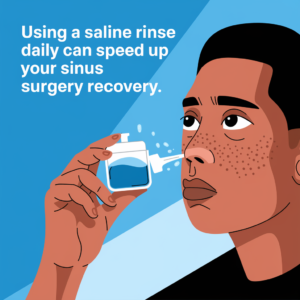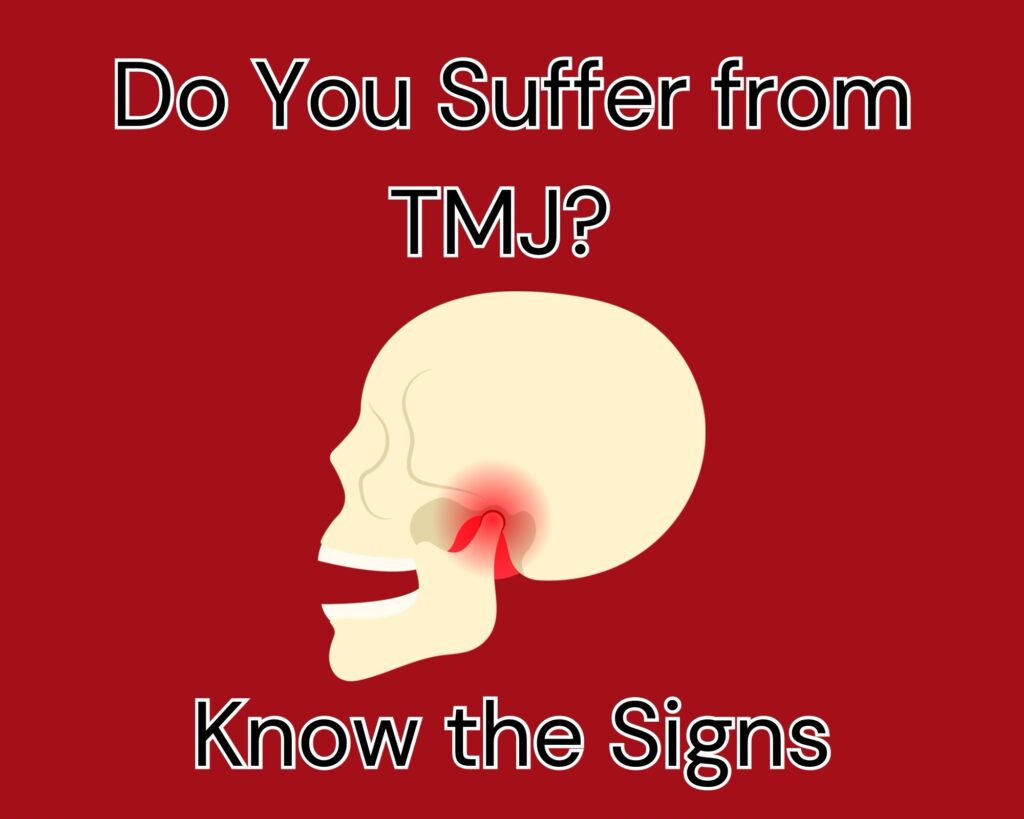
Understanding TMJ and Its Wide-Ranging Impact
Do you often experience headaches, jaw pain, or a clicking sound when you open or close your mouth? These could be signs of Temporomandibular Joint Disorder, commonly known as TMJ. This condition affects the joint that connects your jaw to your skull, leading to a variety of symptoms that can disrupt your daily life and well-being.
TMJ is notoriously complex, manifesting symptoms that many might not immediately associate with jaw dysfunction. From earaches and neck pain to unexpected issues like sinus pain and even changes in hearing, the effects of TMJ are broad and varied. Understanding these symptoms is crucial, not only for recognizing the disorder but also for seeking appropriate treatment.
In this article, we’ll explore the diverse symptoms of TMJ—both common and uncommon—to help you identify if you’re one of the many people unknowingly suffering from this condition. Whether you’ve experienced long-term jaw discomfort or are just starting to notice strange pains and sensations in areas like your neck or ears, understanding TMJ’s impact can be the first step towards finding relief. Let’s dive into the signs that might indicate you have TMJ, backed by insights on managing the symptoms effectively.
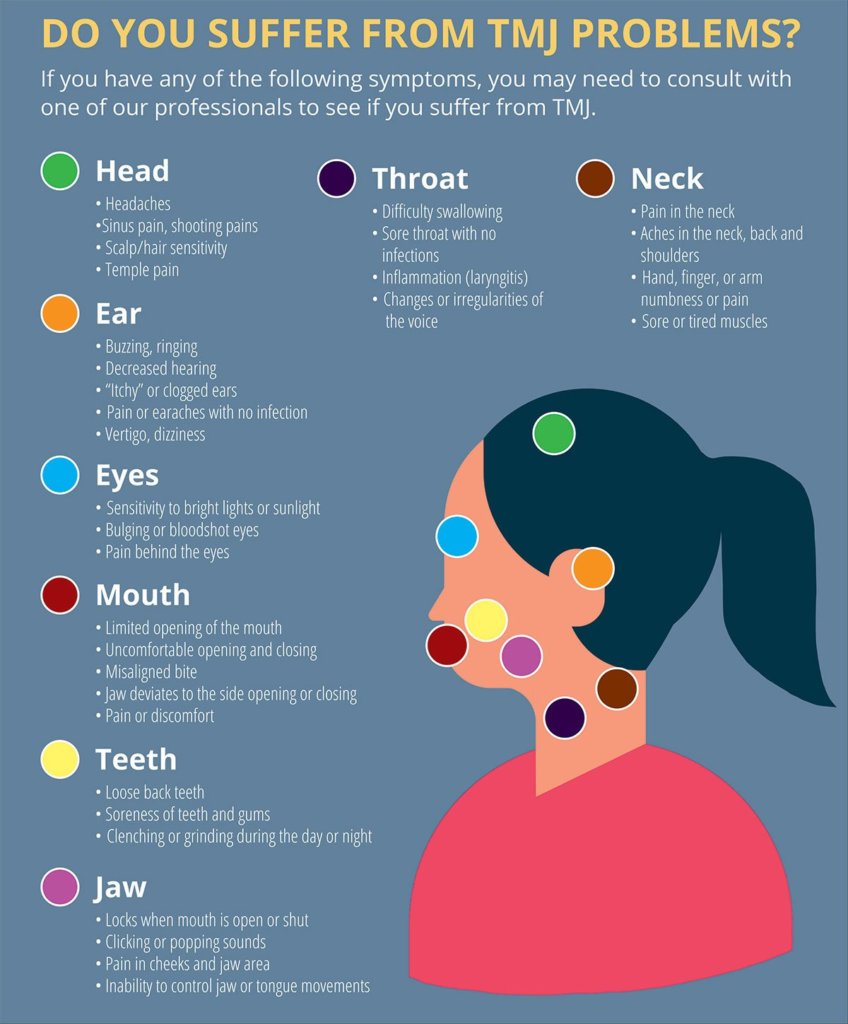
Commonly Recognized Symptoms of TMJ
TMJ can present a range of symptoms that affect the jaw and surrounding areas. Understanding these common signs is essential for early detection and effective management of the disorder. Here are some of the most frequently recognized symptoms associated with TMJ:
- Jaw Pain and Discomfort: One of the primary symptoms of TMJ is pain in the jaw area. This can occur as a constant ache or pain that flares up during activities like chewing, talking, or yawning.
- Clicking or Popping Sounds: Many individuals with TMJ experience a clicking or popping noise when they open or close their mouths. This sound is caused by the shifting of the disc inside the joint and is often accompanied by a grating sensation.
- Difficulty Opening or Closing the Mouth: Some people with TMJ find it challenging to open or close their mouths completely. This can affect eating, speaking, and even yawning.
- Lockjaw: In severe cases, TMJ can lead to lockjaw, where the jaw becomes stuck in an open or closed position. This can be a painful and frightening experience, requiring immediate medical attention.
These symptoms are often the first indicators of TMJ and can vary in intensity from mild to severe. For those looking for immediate pain management tips, the article “TMJ Relief: Best DIY Pain Management Tips” provides valuable guidance on alleviating discomfort at home.
Recognizing these symptoms early can significantly impact the effectiveness of treatment and the overall quality of life. If you’re experiencing any of these issues, it’s important to consult with a healthcare provider to explore diagnosis and treatment options.

Unexpected Areas Affected by TMJ
For me and my TMJ, mine is bad enough I have so many symptoms from that I have spent years trying to figure out from the headaches to the neck pain and dizziness and more! It is no fun! It is debilitating!
While the jaw-related symptoms of TMJ are well-known, this disorder can also manifest in less obvious ways that may surprise you. Here are some unexpected areas and symptoms that TMJ can affect, which you might not immediately link to jaw issues:
- Headaches and Temple Pain: TMJ can cause tension headaches or pain in the temples due to the strain on the muscles surrounding the jaw and face. These headaches can often mimic migraines, making it difficult to diagnose the root cause without a thorough understanding of TMJ.
- Ear Symptoms: Individuals with TMJ may experience a range of ear-related symptoms, including earaches, a sense of fullness or “itchy” ears, and even tinnitus (ringing or buzzing noises). These symptoms occur because the temporomandibular joint is located close to the ear canal.
- Neck and Shoulder Pain: TMJ can lead to pain that radiates beyond the jaw to the neck and shoulders. This can result in soreness and stiffness in these areas, often exacerbated by the same factors that trigger jaw pain.
- Dizziness or Vertigo: Some people with TMJ experience dizziness or vertigo, which is thought to be linked to the proximity of the temporomandibular joint to the inner ear structures.
- Vision Problems: Though less common, TMJ can sometimes affect vision, causing symptoms such as sensitivity to light or blurred vision, likely due to the tension and pressure the disorder places on surrounding facial and cranial muscles.
Understanding these extended impacts of TMJ can be crucial for those who experience these symptoms but have not made the connection to their jaw health. For a deeper dive into how these symptoms can be mistaken for other conditions, consider reading “Is It TMJ or Something Else? Identifying the Root Cause of Pain”, which provides insights into differentiating TMJ from other potential causes.
If you find yourself suffering from any of these broader symptoms without a clear explanation, it may be worth discussing the possibility of TMJ with your healthcare provider. Being aware of all the potential symptoms of TMJ can help in obtaining a more accurate diagnosis and, consequently, more effective treatment.
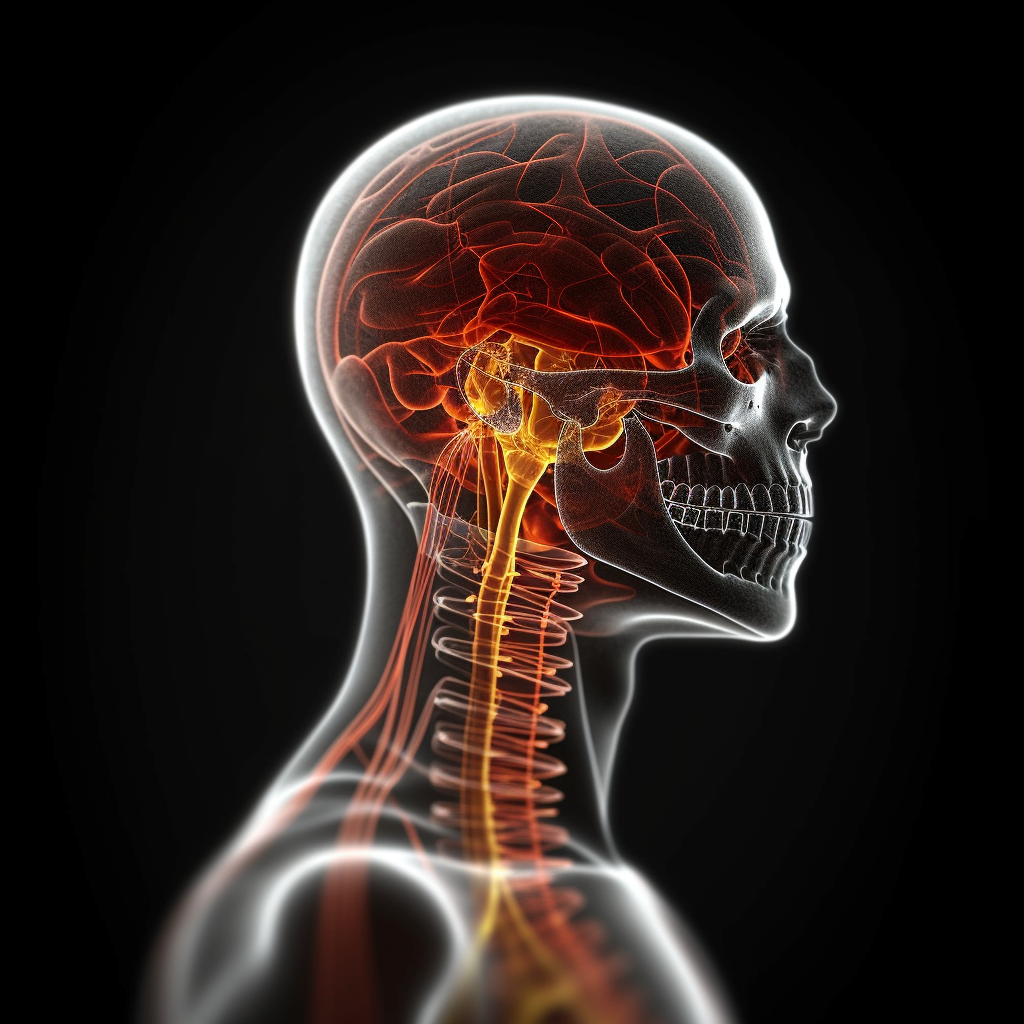
The Connection Between TMJ and Neck Pain
One of the lesser-known but significant impacts of TMJ is on the neck and surrounding areas. The intricate network of muscles and nerves that connect the jaw to the neck can mean that issues in one area often lead to discomfort in the other. Here’s how TMJ can lead to neck pain and what you might experience:
- Pain in the Neck and Shoulders: The muscles involved in moving and stabilizing the jaw also extend into the neck and shoulders. TMJ can cause these muscles to tense up or spasm, leading to aching, soreness, and stiffness in these regions.
- Difficulty Swallowing: TMJ can affect the muscles used in swallowing, leading to discomfort or a sensation of tightness when trying to swallow. Some individuals may experience a sore throat frequently without any signs of infection.
- Postural Issues: TMJ can influence your posture. Since pain can cause individuals to hold their head or neck in unusual positions to minimize discomfort, this can lead to chronic postural problems that exacerbate pain in the neck and shoulders.
- Nerve Pain: The nerves that run through the jaw also interact with areas around the neck. TMJ can irritate these nerves, leading to pain that radiates down the neck and even into the upper back.
Understanding the relationship between TMJ and neck pain is crucial for managing these symptoms effectively. The discomfort you experience in your neck may not always originate there—it could be radiating from TMJ issues. To help alleviate neck pain associated with TMJ, consider adjusting your sleeping arrangements or pillow setup, as suggested in the resource “Neck Pain at Night: Your Pillow Might Be the Culprit”, which offers insights into how the right pillow can make a significant difference.
If you are experiencing these symptoms, it is essential to seek a comprehensive evaluation from a healthcare professional who understands the complexities of TMJ. They can provide tailored advice and treatment options that address both the primary issue in the jaw and the secondary effects in the neck and shoulders, offering a holistic approach to relief.
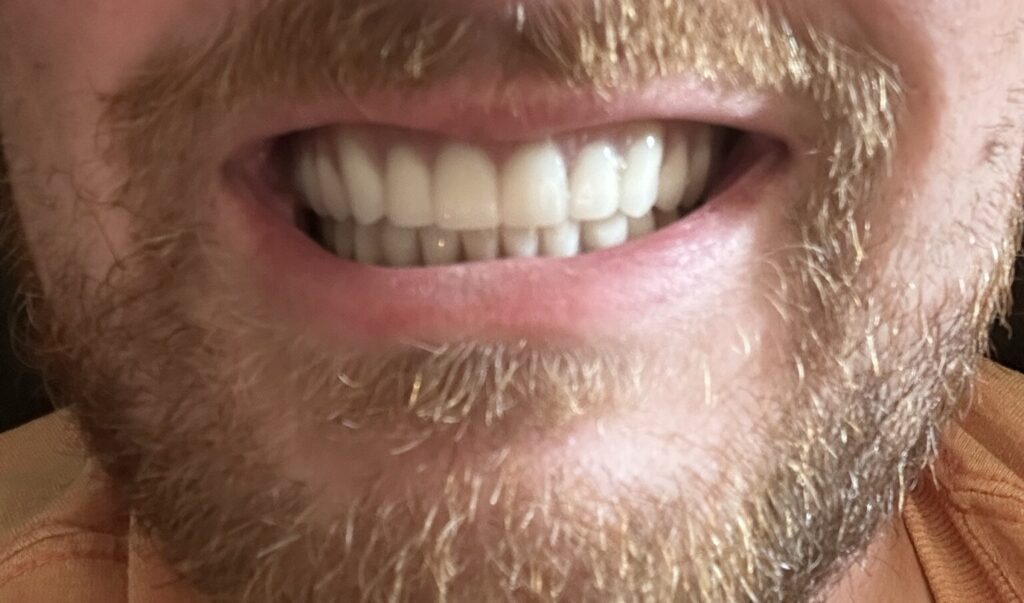
TMJ and Its Effects on Oral Health
Specifically for me, my TMJ pain has been around for 5+ years and my teeth was worn down so much from the grinding I have to have all of my teeth removed and due to my acid reflux constantly also destroying my teeth. Read about that personal journey here!
TMJ can have a profound impact on various aspects of oral health, affecting not just the jaw but also the teeth and gums. Here’s a closer look at how TMJ can influence these areas and what symptoms you might encounter:
- Clenching and Grinding: One of the most common indicators of TMJ is bruxism, which involves clenching the jaw or grinding the teeth, especially during sleep. This habit can lead to tooth wear and increased tooth sensitivity, and in severe cases, it can cause cracking or chipping of the teeth.
- Gum Soreness and Tooth Pain: The excessive pressure from clenching or grinding can also affect the gums, leading to soreness and inflammation. Additionally, this constant strain can cause pain that radiates into the teeth and gums, which might be mistaken for other dental issues such as cavities or gum disease.
- Changes in Bite Alignment: TMJ disorders can alter the way your jaw naturally aligns and moves. Over time, this can lead to changes in your bite, which may cause uneven wear on your teeth, difficulty in chewing, and even changes in facial appearance.
- Jaw Deviation: A less common but notable symptom is a deviation of the jaw when opening or closing the mouth, where the jaw moves to one side or the other. This can indicate more severe TMJ complications and requires immediate attention from a dental professional.
These symptoms not only cause discomfort but can also have long-term consequences for your dental health. Managing TMJ effectively requires a comprehensive approach that includes protecting your teeth and gums. For those experiencing teeth grinding or jaw clenching, exploring treatment options such as custom mouthguards can provide relief and prevent further dental damage.
If you suspect your oral health symptoms might be linked to TMJ, it’s crucial to consult with a dentist or a TMJ specialist who can provide a proper diagnosis and tailored treatment plan. Addressing TMJ early can help mitigate its impact on your oral health and overall well-being, ensuring that your mouth remains healthy and functional.

How TMJ Affects Overall Wellness
The effects of TMJ extend beyond physical symptoms, impacting overall wellness and quality of life. Understanding the broader implications of TMJ can help in developing a holistic approach to management and treatment. Here’s how TMJ can affect your general health and daily life:
- Sleep Disturbances: TMJ disorders often lead to discomfort that can disrupt sleep patterns. Issues like pain while lying down, difficulty finding a comfortable position, or disturbances caused by teeth grinding can significantly impact sleep quality, leading to fatigue and decreased productivity during the day.
- Emotional and Psychological Impact: Chronic pain associated with TMJ can also lead to heightened stress, anxiety, and even depression. The ongoing discomfort can affect mood, increase irritability, and strain personal and professional relationships.
- Eating and Nutrition Challenges: TMJ can make chewing painful and difficult, which might lead individuals to avoid certain foods or alter their eating habits. This can lead to nutritional deficiencies if not properly managed, affecting overall health.
- Concentration and Cognitive Function: Chronic pain can also impair cognitive functions, making it harder to concentrate, focus, or perform tasks that require mental clarity. This can impact your work performance and personal life, adding to the stress and emotional burden of TMJ.
- Social Interaction: The pain and discomfort of TMJ might discourage social interaction, especially activities that involve eating or talking for extended periods. This can lead to social isolation and a decreased quality of life.
Recognizing these broader impacts is crucial for anyone dealing with TMJ. Managing the condition isn’t just about alleviating physical symptoms but also about addressing the psychological and social aspects. Incorporating stress-reduction techniques, seeking psychological support, and ensuring a balanced diet are all important steps in managing TMJ comprehensively.
If you find the symptoms of TMJ are affecting your overall wellness, consulting with health professionals who understand the multifaceted nature of TMJ, such as those recommended in “TMJ Solutions: What Meds Really Work?”, can provide relief and improve your quality of life. By tackling TMJ from multiple angles, you can regain control over your health and continue to lead a fulfilling life despite the challenges posed by this complex disorder.
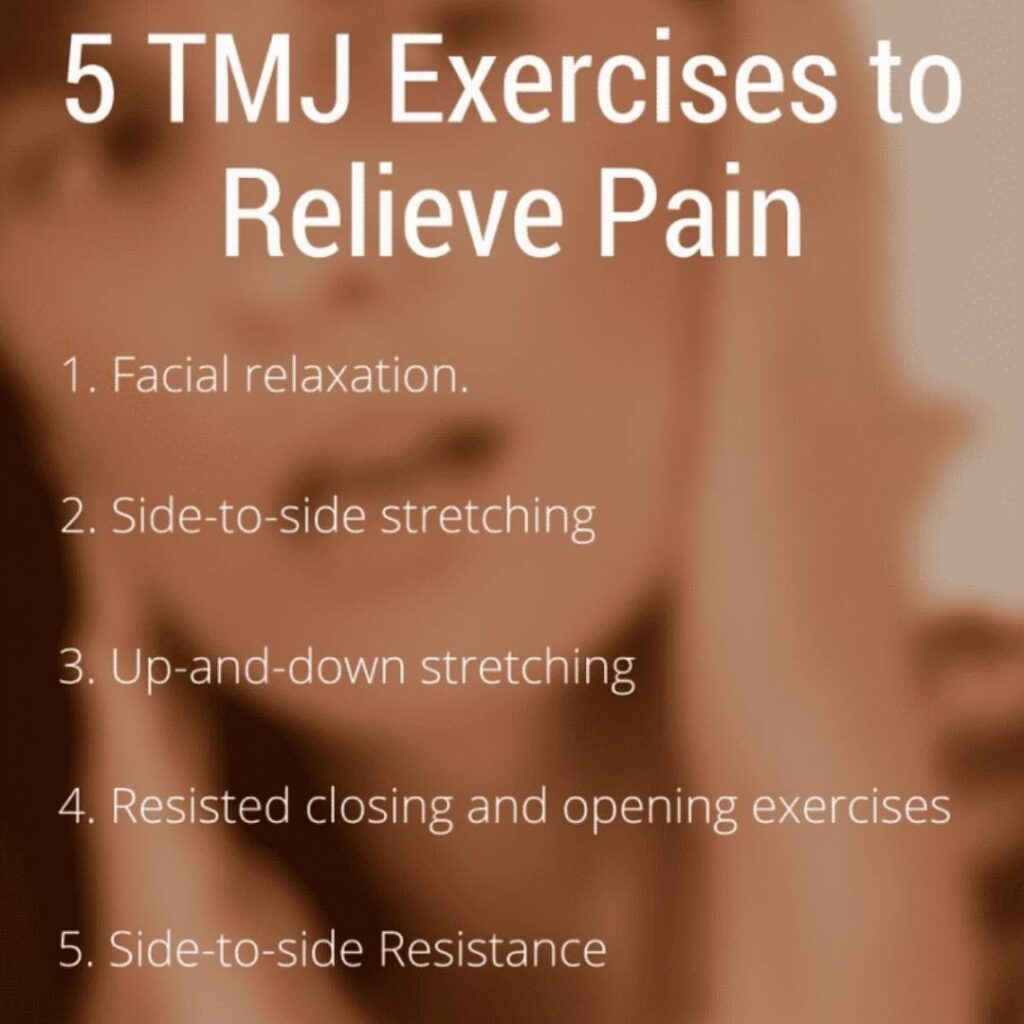
Treatment Options for TMJ
Navigating the complexities of TMJ treatment can be daunting, but understanding the available options can empower you to make informed decisions about managing this condition. Here are some effective treatment strategies for TMJ:
- Medications: Over-the-counter pain relievers and anti-inflammatory drugs can help manage pain and swelling. For more severe cases, your doctor might prescribe muscle relaxants, anti-anxiety medications, or even stronger painkillers. Always consult a professional before starting or changing any medication regimen. For a deeper understanding of what medications are particularly effective, explore “TMJ Solutions: What Meds Really Work?”.
- Therapies: Physical therapy can be invaluable in treating TMJ. A therapist can teach you exercises to strengthen and stretch your jaw muscles, improve alignment, and increase jaw mobility. Other therapeutic options include counseling to help manage stress, which can exacerbate TMJ symptoms.
- Oral Appliances: Dentists often prescribe oral appliances, such as mouth guards or splints, which can be worn to prevent teeth grinding during sleep and correct jaw positioning. These devices can help relieve pressure on the jaw and reduce symptoms.
- Minimally Invasive Procedures: For persistent TMJ issues that do not respond to other treatments, options like corticosteroid injections or TMJ arthrocentesis (flushing of the joint) may be considered. These are typically done under the guidance of a specialist.
- Surgery: As a last resort, surgical interventions may be necessary. TMJ surgeries can range from minimally invasive arthroscopic procedures to more complex surgeries that involve repairing or replacing the joint. Surgery is usually considered only when all other treatments have failed to relieve symptoms.
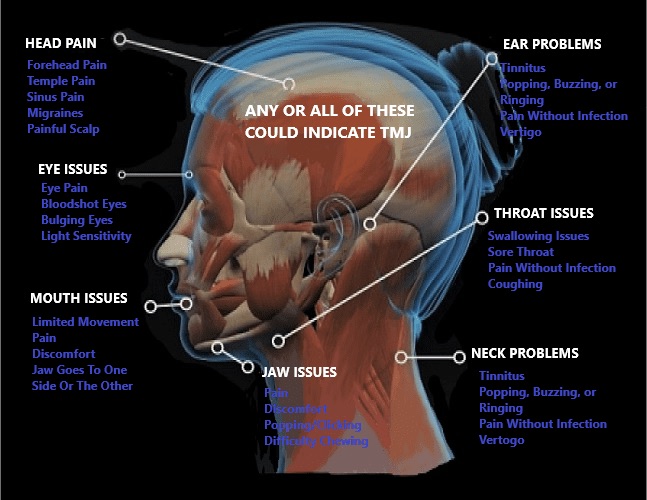
Taking Action Against TMJ
Living with TMJ can be challenging, but with the right strategies and support, it is manageable. If you suspect you have TMJ, the first step is to seek a comprehensive evaluation from a healthcare provider who can diagnose and recommend appropriate treatment. Early intervention can prevent your symptoms from worsening and improve your overall quality of life.
Remember, TMJ affects everyone differently, and what works for one person might not work for another. It’s important to stay proactive in your treatment plan, keep regular follow-up appointments, and communicate openly with your healthcare team about what is or isn’t working for you.
Ultimately, taking control of your TMJ symptoms requires a combination of medical treatment, lifestyle adjustments, and possibly even psychological support. By understanding the full spectrum of symptoms and treatment options available, you can navigate TMJ with confidence and ease, ensuring that you continue to enjoy a healthy, active life.
As an Amazon Associate we earn from qualifying purchases through some links in our articles.

